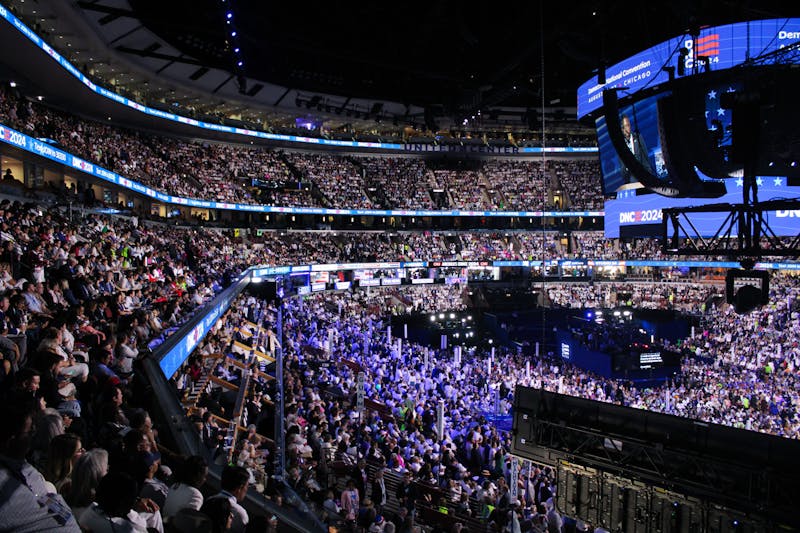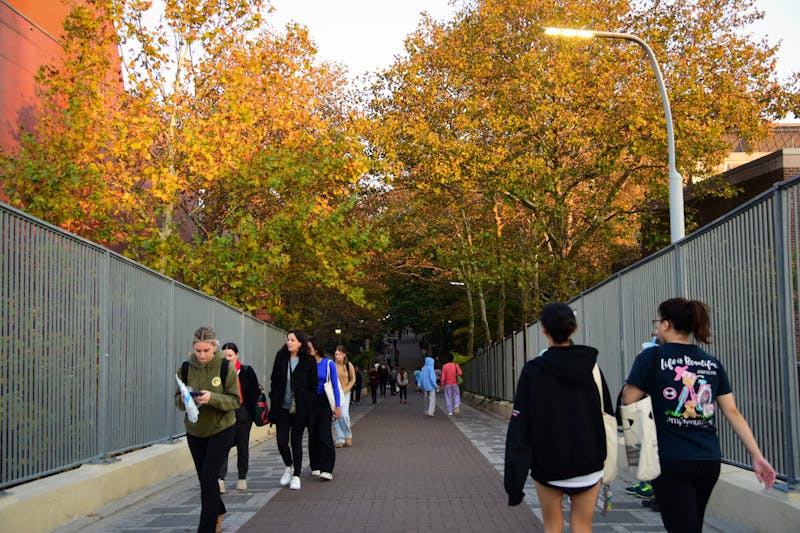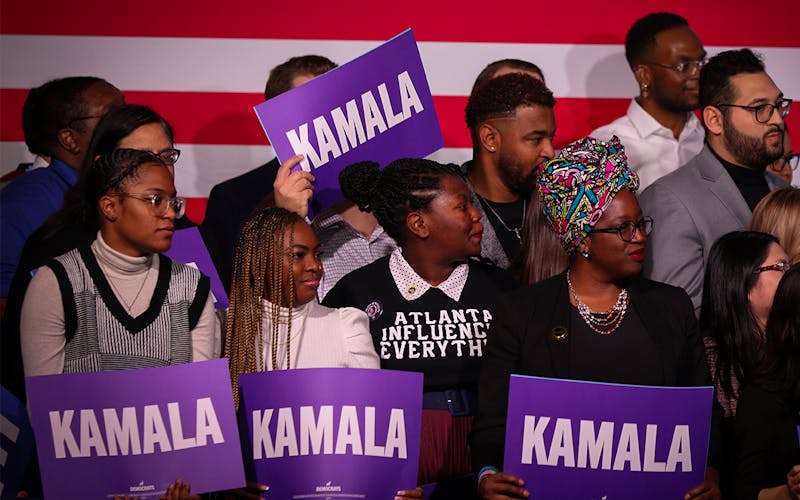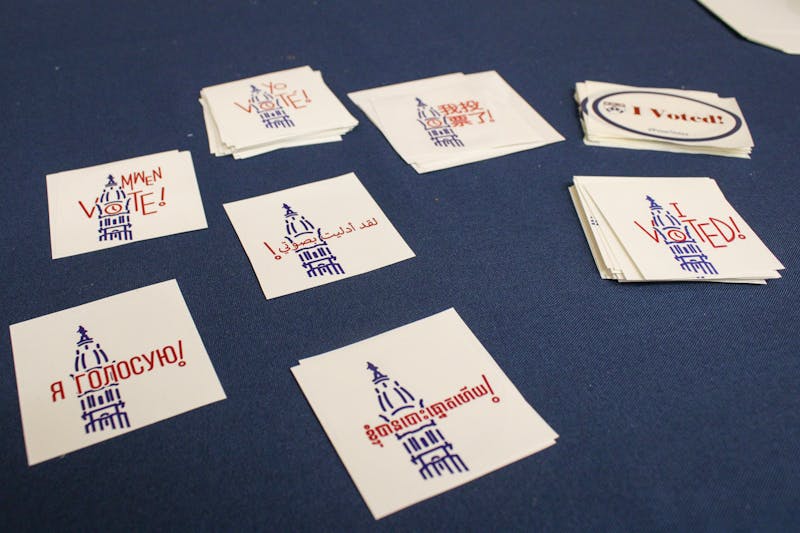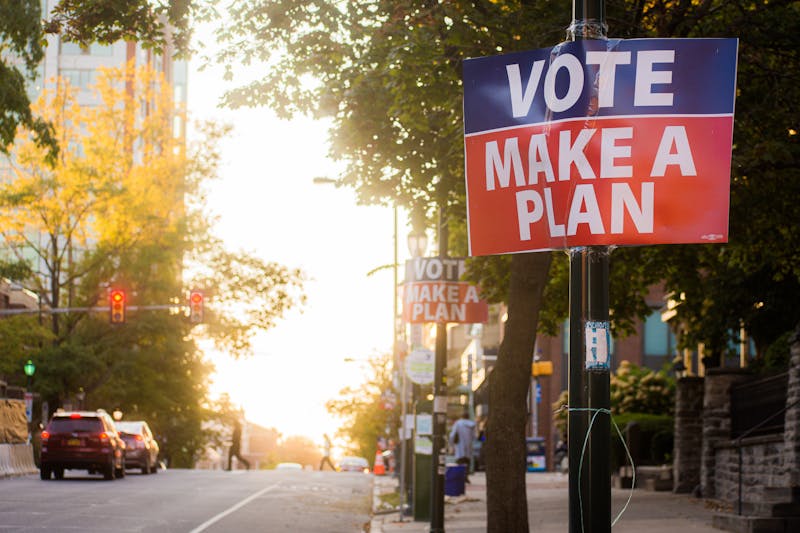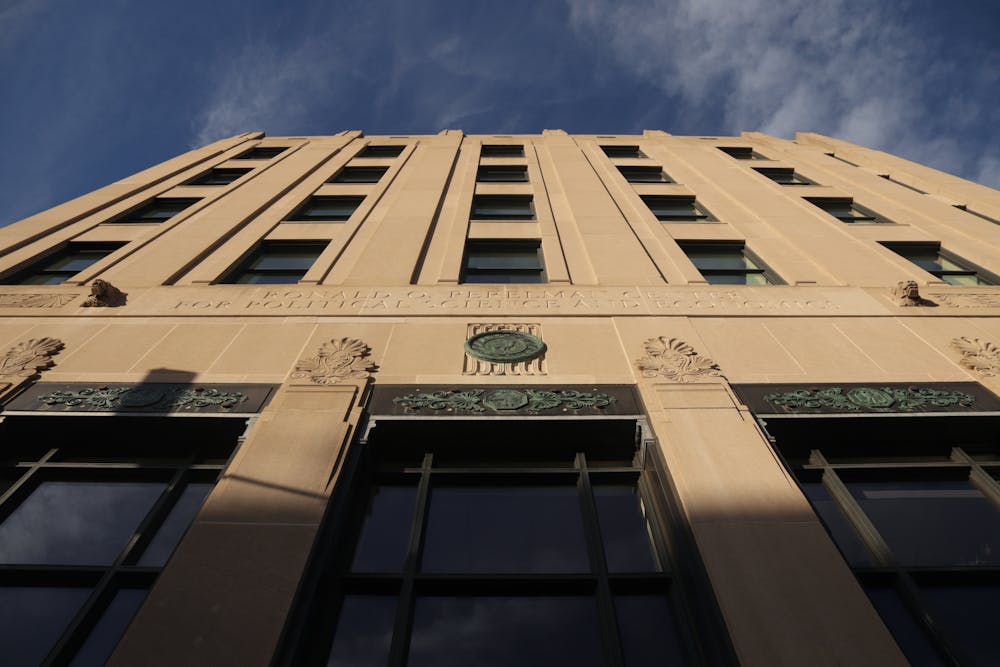
The Penn Program on Opinion Research and Election Studies is preparing for 2024 election night coverage, and in the process, providing Penn students with exposure to real-time data analysis and public-facing media work.
PORES has given undergraduate students opportunities to conduct public opinion researrch since the program's founding in 2015. Students are hired every semester and during the summer for research-oriented fellowships, and they are generally paired with professors in the political science department. The PORES team has members that specialize in a diverse set of issues, including polling, election administration, campaign finance, and more international-oriented areas.
One of the most significant projects this year is PORES's work with the NBC News Decision Desk, which analyzes election data and calls races. Andrew Arenge, the Director of Operations for PORES, has leveraged Penn’s close relationship with major news outlets to involve students in coverage of the 2024 presidential election.
“If you're going to watch NBC, MSNBC, CNBC, or Telemundo on election night when their anchors on TV say ‘NBC News projects that Donald Trump won this state,' or 'Kamala Harris won that state,’ it's our team here at PORES that is doing that real-time data analysis work,” Arenge said.
While the calls for these races may seem simple, these projections often have months, or even years, worth of work being done behind the scenes.
“I've been watching election coverage all my life since I was very, very young, but I didn't know what went into making a call,” College senior and PORES fellow Arushi Saxena said.
According to Saxena, the process begins with creating extensive spreadsheets for each state, listing schools, relevant contacts, county clerks, and key phone numbers for election day. Some spreadsheets can contain information for up to 500 or 600 townships or counties.
The team then collects email addresses and websites from local government pages to ensure they have accurate contact information for election night. Afterward, they determine where to access turnout data, which comes from national election polls through official data providers such as Edison Research.
“If Coffee County in Georgia has 4,000 votes at 9:32 p.m., we'd be able to see that really, really fast, but we need big databases so we can pick it up in the first place,” Saxena said.
Professors affiliated with PORES also have essential roles in the process. Marc Meredith, a political science professor, works closely with students through his mentorship and hands-on instruction.
“With students, oftentimes their only interactions with faculty are in classroom settings. When you're engaging in research with them or engaging in more collaborative work, [it] just helps show you a different type of relationship you can have,” Meredith said.
Outside of this learning experience, PORES is also conducting important research in the realm of election administration — a topic that has been at the forefront of the political landscape in recent years.
“Elections are complicated. It's a completely decentralized system where the rules in one state and procedures of how things work are not necessarily the rules in another state,” Arenge said.
PORES released an article in 2022 that detailed key findings about the ways votes could be discounted. Their research showed many factors could prevent a voter’s mail ballot from being counted, such as not putting their signature and date on the outside envelope. By highlighting the issues people have faced in the past, PORES hopes to make these issues less likely to occur in future years, particularly in advance of the 2024 presidential election.
In addition to election administration, PORES has been researching how campaigns have been targeting different audiences through political advertisements. Arenge estimates that the Harris campaign has spent at least $50 million on targeted digital ads over the past year, while the Trump campaign has only spent about $8 million on these ads. He added that the Harris campaign has targeted specific ads towards college students about issues like healthcare, while the Trump campaign has started to target ads towards men under the age of 35.
Through all of its various initiatives, PORES has been working to prepare for the upcoming election and engage deeply with research topics relevant to the Penn community.
“[PORES] is a very Penn-specific opportunity. There isn't another university that's out there or news division that has such a specific and tight working relationship, where we're able to pull Penn students in,” Arenge said. “Students can use all of the skills that they've learned through the classes and research fellowships to do the real-time public-facing work we do on election nights.”
The Daily Pennsylvanian is an independent, student-run newspaper. Please consider making a donation to support the coverage that shapes the University. Your generosity ensures a future of strong journalism at Penn.
Donate







